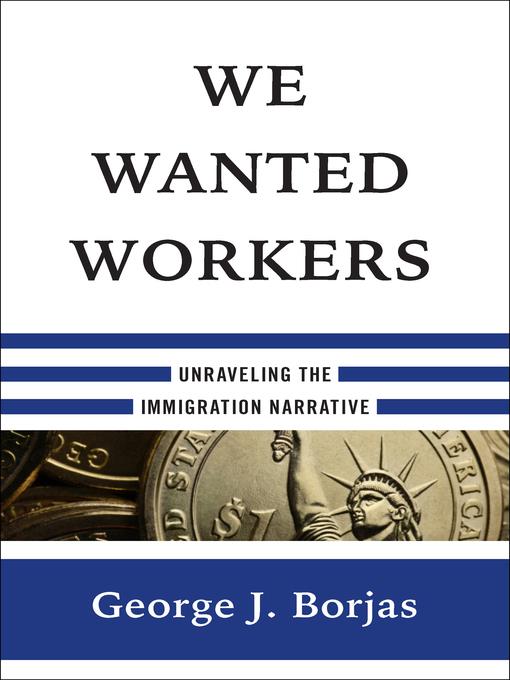
We Wanted Workers
Unraveling the Immigration Narrative
کتاب های مرتبط
- اطلاعات
- نقد و بررسی
- دیدگاه کاربران
نقد و بررسی

June 20, 2016
When an economist wades into a contentious public policy issue, people may gain a better understanding of the nuances, but their underlying convictions are unlikely to change. Borjas, a Harvard professor who has studied the economics of immigration for decades, gamely attempt to explain the complex mix of benefits and drawbacks of the current and preceding waves of immigration to the United States, but his most dramatic conclusions are tempered by equivocal comments such as “We should not be shocked that different methods can easily generate radically different estimates of the gains” of large-scale immigration. His faith in statistics and rigorous methodology is a constant theme, and he finds “ideologically motivated assumptions and platitudes thoroughly unconvincing.” Instead, he undertakes the analysis of a number of studies. That, of course, is a worthy approach for elevating a debate, but hearing that “it took nearly a century for the melting pot to do its job” makes it harder to evaluate the success of the American experiment in creating an immigrant nation. While Borjas will go as far as to say that immigration will create winners and losers, the book informs without offering particularly satisfying conclusions.

July 1, 2016
A counternarrative to the many misguided ideas about immigrants arriving in the United States.The conventional wisdom that troubles award-winning economist Borjas (Economics and Social Policy/Harvard Kennedy School; Immigration Economics, 2014, etc.) states that immigrants should be seen solely as workers who fill jobs for which Americans are unqualified or uninterested in performing. As an immigrant from Fidel Castro-controlled Cuba who moved to the U.S. when he was 12, the author emphasizes the seemingly obvious notion that immigrants are more than just laborers: they are unique humans whose needs create an impact on schools, welfare resources, the environment, and electoral politics, among other areas of society. Furthermore, writes Borjas, immigration always produces winners and losers: a low-wage job accepted by an immigrant might enrich an employer or investor but might harm a fellow laborer previously earning more. The author believes a great deal of the research about the economics of immigration is mistaken due to flawed data collection, flawed data analysis, and political biases. Thankfully, Borjas takes a mostly measured approach to his field, which has become "perhaps the most divisive issue of our time." He never castigates open immigration policies, advocating instead for politicians and bureaucrats throughout all levels of government to recognize costs as well as benefits. The author also refuses to accept the idea that many immigrants fare poorly in the U.S. because of racial or ethnic prejudices by employers. Instead, he says, some immigrants earn the lowest wages because they lack highly marketable skills. The lower-skilled immigrants do not simply fill jobs that American citizens shun, but often do the somewhat-desirable jobs at a prevailing wage below what citizens will accept. Although the economic analyses may be obscure to some noneconomist readers, Borjas provides an intriguing, clearly written polemic.
COPYRIGHT(2016) Kirkus Reviews, ALL RIGHTS RESERVED.

May 15, 2016
Casteel's Underwater Dogs was the best-selling photography book of 2012, spending 11 weeks on the New York Times best sellers list, with over 200,000 copies shipped; the follow-up, Underwater Puppies, was also a New York Times best seller. Now Casteel gives us flying kitties.
Copyright 2016 Library Journal, LLC Used with permission.

























دیدگاه کاربران